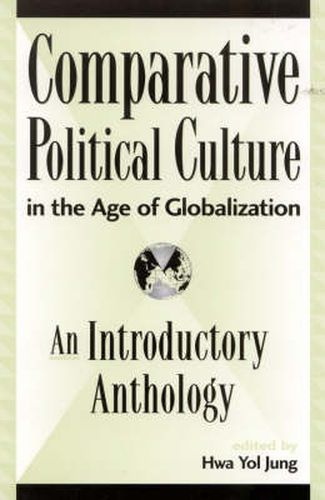Readings Newsletter
Become a Readings Member to make your shopping experience even easier.
Sign in or sign up for free!
You’re not far away from qualifying for FREE standard shipping within Australia
You’ve qualified for FREE standard shipping within Australia
The cart is loading…






With a specific focus on Asia, this anthology constitutes an excursion into the realm of transversality, or the state of postethnicity , which, the text argues, has come to characterize the global culture of our times. Hwa Yol Jung brings together prominent contemporary thinkers - including Thich Nhat Hanh, Edward Said and Judith Butler - to address this fundamental and important aspect of comparative political theory. The work is divided into three parts. Part One demythologizes Eurocentrism, deconstructing the habitus of mind that privileges modern Europe as the world’s cultural, scientific, religious and moral capital. Part Two traces the rise of Asian thought, and the process of East-West cultural hybridization, while Part Three introduces the concept of the global citizen . Jung’s anthology reveals a postmodern multiculturalism whose new philosophical matrix transgresses the existing cultural and intellectual typology to offer an understanding of today’s pluralistic world.
$9.00 standard shipping within Australia
FREE standard shipping within Australia for orders over $100.00
Express & International shipping calculated at checkout
With a specific focus on Asia, this anthology constitutes an excursion into the realm of transversality, or the state of postethnicity , which, the text argues, has come to characterize the global culture of our times. Hwa Yol Jung brings together prominent contemporary thinkers - including Thich Nhat Hanh, Edward Said and Judith Butler - to address this fundamental and important aspect of comparative political theory. The work is divided into three parts. Part One demythologizes Eurocentrism, deconstructing the habitus of mind that privileges modern Europe as the world’s cultural, scientific, religious and moral capital. Part Two traces the rise of Asian thought, and the process of East-West cultural hybridization, while Part Three introduces the concept of the global citizen . Jung’s anthology reveals a postmodern multiculturalism whose new philosophical matrix transgresses the existing cultural and intellectual typology to offer an understanding of today’s pluralistic world.